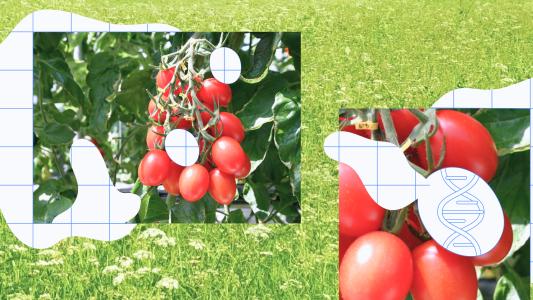Chinese scientists have figured out how to make synthetic starch from carbon dioxide (CO2) without relying on plants, and if they can make the process more efficient — a big if — it could help feed the world and protect the environment.
Why it matters: Starch is a type of carb found in many foods, including corn, potatoes, and rice. These plants make starch by converting CO2 and water into energy through photosynthesis. Energy that isn’t used right away is turned into starch.
Besides being important to food, starch also has many other uses, playing a role in papermaking, drug manufacturing, and more.
“We only need a few hours in the lab to complete the process which takes a few months by plants.”
Cai Tao
The challenge: To meet the global demand for starch, manufacturers grow starchy plants (usually corn) and then put them through an extraction process.
Not only does the growing of the plants require significant land and water resources, it can also introduce harmful pesticides and fertilizers into the environment.
Synthetic starch: Now, Chinese scientists have developed a way to convert CO2 into starch in a bioreactor — and they say their plant-free process is 8.5 faster than producing starch from corn.
“We only need a few hours in the lab to complete the process which takes a few months by plants,” lead author Cai Tao told state broadcaster CCTV.
Starch your engines: The process of making synthetic starch may be faster, but it’s far less energy efficient. The first step alone — converting CO2 into methanol — involves high temperatures and pressures that require a lot of energy (presumably from fossil fuels) to produce.
“We will have more scientific challenges in the future.”
Ma Yanhe
Now that they know how to create the synthetic starch, though, the researchers can focus on making the process more efficient.
“It is still in the laboratory stage, and we will have more scientific challenges in the future,” corresponding author Ma Yanhe told CCTV.
“If it can be industrialized,” he continued, “it will provide strong support for food security, carbon dioxide utilisation, and carbon peak and carbon neutrality goals.”
We’d love to hear from you! If you have a comment about this article or if you have a tip for a future Freethink story, please email us at tips@freethink.com.
